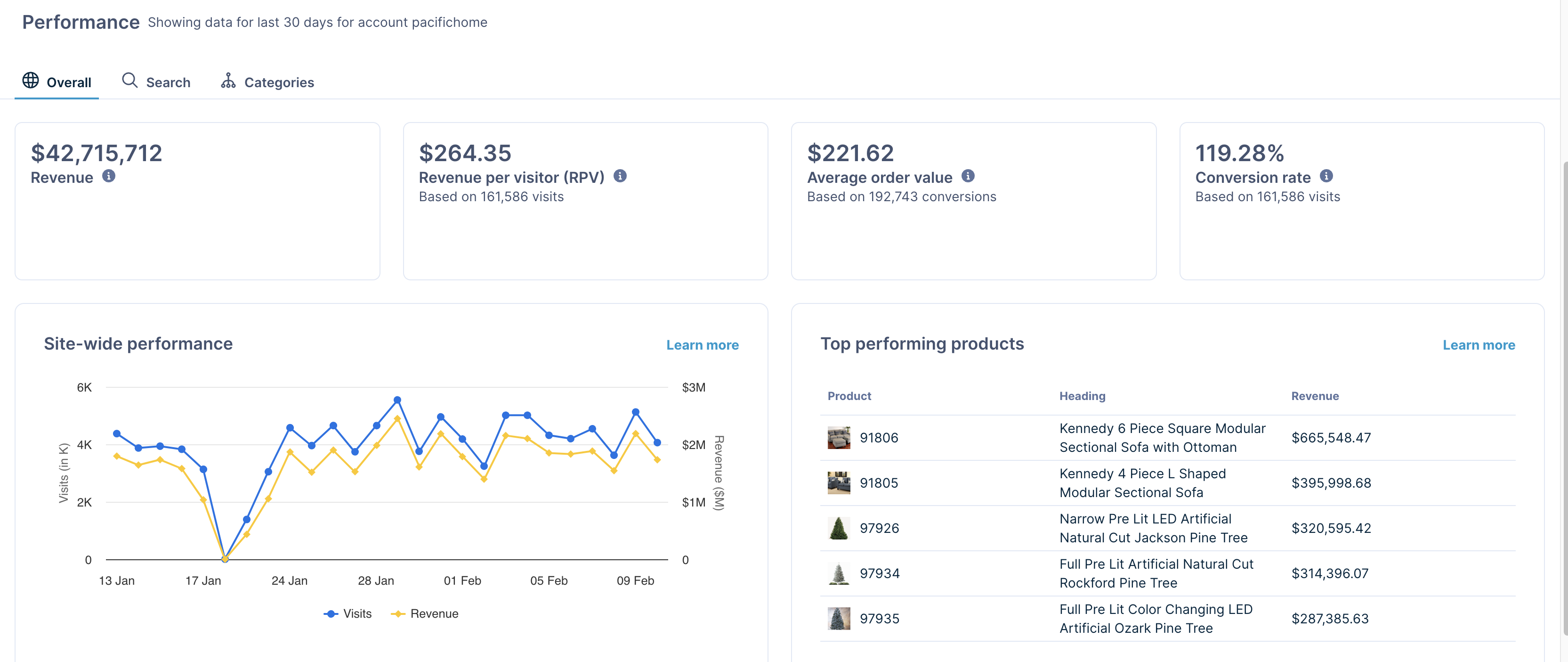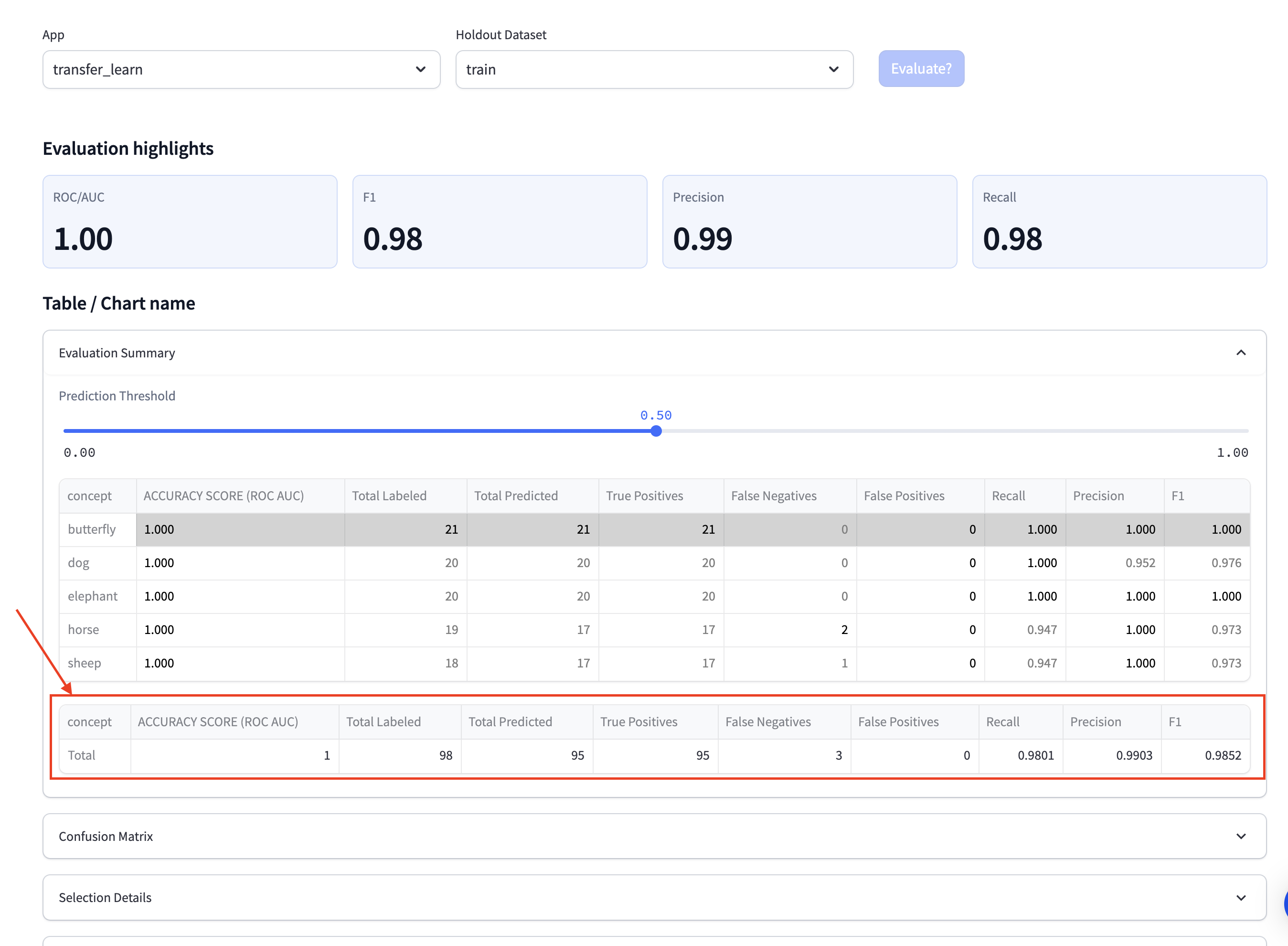Alternatives to Impact Analytics AttributeSmart
1. Bloomreach Discovery
+Pros
- Commerce-Specific AI Expertise with Loomi AI engine trained on over 14 years of commerce data.
- Proven Performance Results with consistent value delivery across diverse customer implementations.
- Enterprise-Scale Technical Architecture with server-side execution and 24/7 enterprise SLA coverage.
- Automated Merchandising Capabilities reducing manual operational tasks by 30-50%.
-Cons
- Implementation Complexity with enterprise deployments requiring 20+ weeks for custom Java integrations.
- Pricing Volatility Concerns with unexpected price changes during contract periods.
- Limited Front-End Flexibility compared to alternatives like Algolia.
- Reliability Risks with documented outages during holiday code freezes.
One highlighted feature and why it's amazing
Uses natural language processing to interpret contextual queries, successfully distinguishing between similar terms like 'dress shirt' versus 'shirt dress'.

Another highlighted feature of why it’s amazing
Combines real-time user behavior with historical data to dynamically adjust search results and category pages for individual users.
2. Clarifai
+Pros
- Hybrid deployment flexibility supporting cloud, on-premises, and edge environments
- Transparent token-based pricing ($0.0012–$0.07 per request) providing clearer cost structure than enterprise competitors
- Proven retail specialization delivering 3x higher visual search accuracy compared to generic alternatives
-Cons
- Scale constraints compared to Google Vision API and AWS Rekognition may limit suitability for enterprise deployments requiring millions of daily image processing operations
- Resource requirements demanding 3-5 dedicated ML engineers for custom model development exceed capabilities of organizations lacking internal AI expertise
One highlighted feature and why it's amazing
Center on image classification, object detection, and similarity matching through deep learning models optimized for ecommerce applications. The platform processes visual data through proprietary neural networks, delivering 3x higher visual search accuracy compared to generic alternatives in documented retail implementations.

Another highlighted feature of why it’s amazing
Features enable automated compliance for marketplace operators, achieving 98% accuracy in detecting luxury brands like Louis Vuitton and Chanel in optimal conditions. NSFW detection capabilities reduce manual review workload, as demonstrated in 9GAG's implementation.
3. Lily AI
+Pros
- Customer-centric attribute approach provides clear differentiation from traditional merchant-focused tagging systems.
- Proven performance outcomes demonstrate measurable business impact.
- Rapid implementation capabilities through the Shopify integration enable 'one-click' deployment with minimal technical resources.
- Continuous learning functionality adapts to changing consumer language patterns.
-Cons
- Vertical specialization limits the platform's applicability to fashion, home goods, and beauty categories.
- Proprietary taxonomy dependency could create vendor lock-in concerns.
- Pricing transparency limitations require direct vendor engagement for cost assessment.
- Data quality dependencies mean that poor input images or descriptions may limit AI accuracy.
One highlighted feature and why it's amazing
Bridges the gap between merchant language and actual shopper search behavior with a proprietary taxonomy of 25,000+ customer-oriented attributes.
Another highlighted feature of why it’s amazing
Processes product photography to extract visual attributes including color, pattern, and style characteristics.
Other Alternatives
Syte.ai Visual Discovery
Tagalys
YesPlz AI
How We Researched This Guide
About This Guide: This comprehensive analysis is based on extensive competitive intelligence and real-world implementation data from leading AI vendors. StayModern updates this guide quarterly to reflect market developments and vendor performance changes.
211+ verified sources per analysis including official documentation, customer reviews, analyst reports, and industry publications.
- • Vendor documentation & whitepapers
- • Customer testimonials & case studies
- • Third-party analyst assessments
- • Industry benchmarking reports
Standardized assessment framework across 8 key dimensions for objective comparison.
- • Technology capabilities & architecture
- • Market position & customer evidence
- • Implementation experience & support
- • Pricing value & competitive position
Research is refreshed every 90 days to capture market changes and new vendor capabilities.
- • New product releases & features
- • Market positioning changes
- • Customer feedback integration
- • Competitive landscape shifts
Every claim is source-linked with direct citations to original materials for verification.
- • Clickable citation links
- • Original source attribution
- • Date stamps for currency
- • Quality score validation
Analysis follows systematic research protocols with consistent evaluation frameworks.
- • Standardized assessment criteria
- • Multi-source verification process
- • Consistent evaluation methodology
- • Quality assurance protocols
Buyer-focused analysis with transparent methodology and factual accuracy commitment.
- • Objective comparative analysis
- • Transparent research methodology
- • Factual accuracy commitment
- • Continuous quality improvement
Quality Commitment: If you find any inaccuracies in our analysis on this page, please contact us at research@staymodern.ai. We're committed to maintaining the highest standards of research integrity and will investigate and correct any issues promptly.